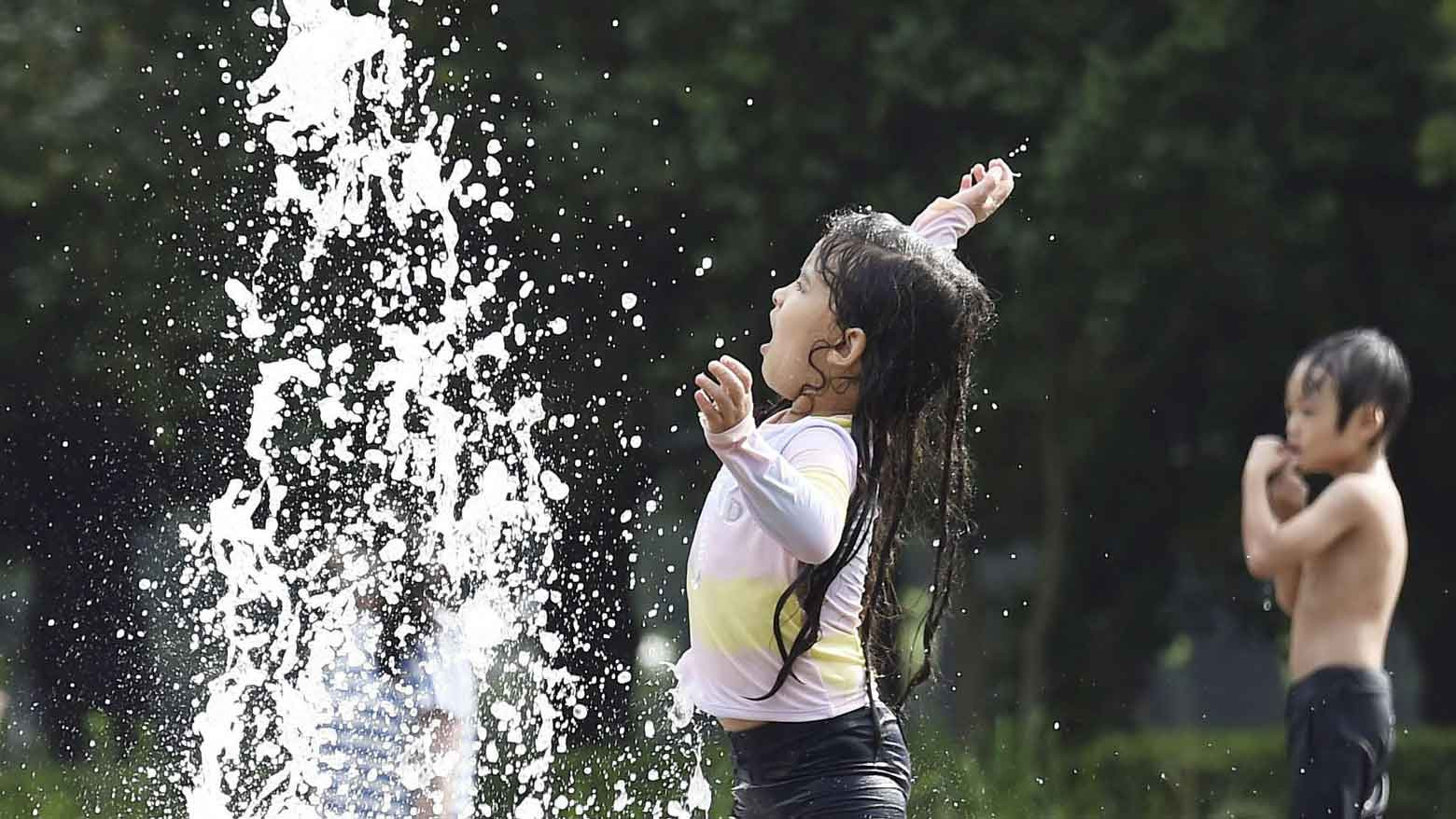On August 7, seven children who were taking gym class outside at an elementary school in Tokyo were taken to hospital with symptoms of heatstroke.
Uematsu Satoko, a doctor at the National Center for Child Health and Development, says children are still developing the ability to sweat, so their bodies retain heat and send their temperature rising quickly. She says height is a factor too, as children absorb more radiant heat from the ground.
Uematsu says adults should stay with children when temperatures soar, so they can watch for changes in their condition. She says infants in particular cannot tell adults how they are feeling, and some children are too absorbed in playing to notice something wrong with their bodies.
Basic precautions: Stay hydrated
Sogo Tsuyoshi, a doctor at the Saiseikai Yokohama City Tobu Hospital, says staying hydrated is the most basic step in preventing heatstroke. He explains that when your body loses water, your temperature is likely to rise, and that elevates the risk of heatstroke.
Sogo says you can detect heatstroke in children by the color of their urine or hardness of their feces. Dark urine or hard feces indicates that a person is losing water. The doctor also says that for babies, the amount of saliva is also a valuable source of information. A decrease in salivary flow or sticky saliva can be signs of dehydration.
But Sogo says these symptoms appear too late to prevent the problem. He urges adults to regulate how long children stay outside and make sure they drink plenty of water.
Coronavirus may increase the risk of heatstroke
Sogo points out that children are more at risk of heatstroke this summer, because they are spending more time than usual indoors due to the coronavirus outbreak. That means they are not as accustomed to high temperatures.
He suggests they choose cooler times of the day, morning or early evening, to go outside. He says they can remove their face masks if they socially distance from others, and he recommends avoiding black or navy blue masks because dark colors absorb more heat, making it difficult for the body to cool down.
Sogo recommends children consume sports drinks to stay hydrated. He says the body loses salt through sweating, and though it may be counterintuitive, drinking water alone can lead to dehydration because your sodium level drops and you end up drinking less.
The doctor also advises children to take plenty of liquids when swimming in the sea or pool, just as they are advised to do while playing outside. He says they tend to forget to stay hydrated, but they sweat even in the water.


